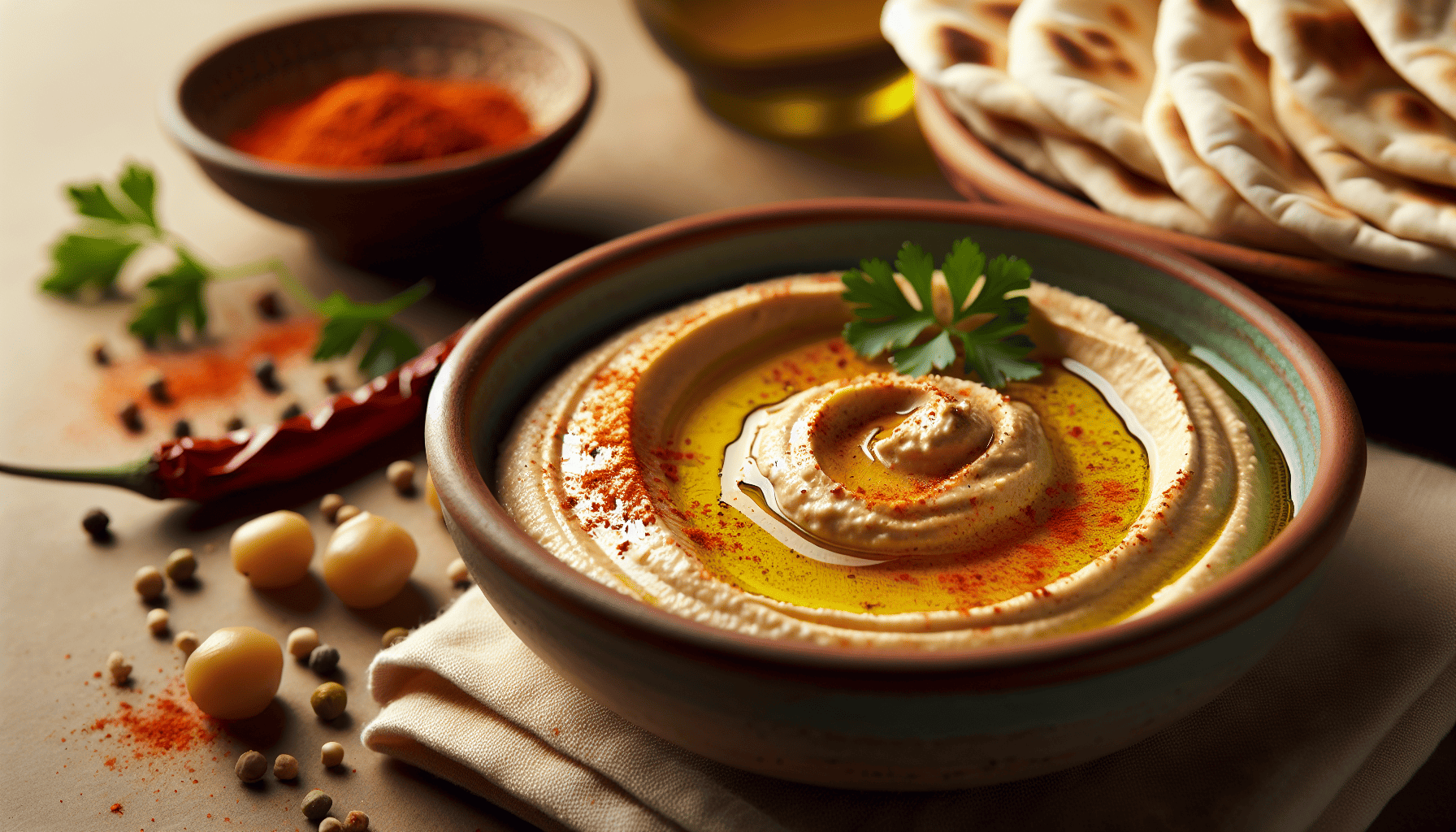Hummus, a simple blend of chickpeas, tahini, lemon juice, garlic, and olive oil, has transcended its roots to become a global culinary staple. In Israeli cuisine, however, this creamy delight holds a special place and is celebrated not just as a dish, but as an integral part of the cultural and social fabric.
In Israeli homes, hummus is more than just a dip; it's a centerpiece that brings people together. Whether part of a family meal, a festive gathering, or a quick lunchtime snack, hummus embodies the rich culinary heritage of the region. The beauty of hummus lies in its simplicity and adaptability, with each family or restaurant boasting its own version, perfected over generations.
The art of making hummus in Israel involves a few well-guarded secrets. The texture, for instance, has to be perfectly smooth, achieved by soaking and boiling chickpeas to just the right consistency. The balance of flavors is essential, with the freshness of lemon juice cutting through the richness of tahini, while garlic provides a gentle yet robust undertone. The final touch is a drizzle of high-quality olive oil, sometimes accompanied by paprika or fresh herbs for an added layer of flavor.
Israeli hummus often serves as a canvas for an array of toppings, ranging from whole chickpeas, sautéed mushrooms, and minced meat to boiled eggs or fava beans. These additions not only enhance the flavor but also transform hummus into a meal in itself, enjoyed with warm pita bread or fresh vegetables.
Recognizing the universal love for this dish, Virtual Food Plaza has taken the initiative to simplify the hummus experience for international audiences. By offering high-quality, ready-to-use ingredients and detailed recipes, they have bridged the gap between traditional Israeli kitchens and homes worldwide. Through their platform, food lovers can explore the diverse variations of hummus, experimenting with toppings and sides, and recreating the authentic Israeli experience at home.
Virtual Food Plaza also provides tutorials and cooking classes led by Israeli chefs, showcasing how to achieve the ideal blend and texture, and how to incorporate hummus into various dishes beyond the classic serving. This approach not only demystifies the process of making authentic hummus but also makes it accessible and enjoyable for everyone, regardless of culinary expertise.
In conclusion, hummus is not just a part of Israeli cuisine; it's a representation of the region's hospitality, creativity, and tradition. With Virtual Food Plaza, this cultural icon is brought to life, allowing anyone to savor the rich and creamy magic of hummus in their own kitchen. Whether you're a seasoned cook or a culinary novice, exploring the world of hummus is a rewarding journey that highlights the beauty of simplicity and the versatility of flavors found in Israeli cuisine.
